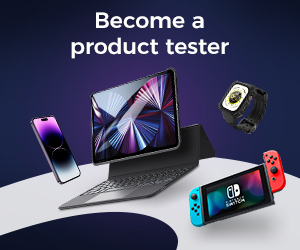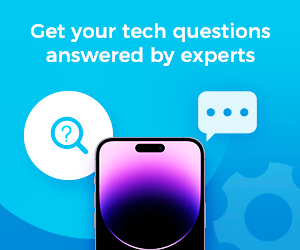Recently, I was at a coffee shop to get some air, take some shots and pen down some techy stuff I was making research on. Then these guys walked in, got some cup of coffee, and soon began talking.
I was off my Air Pods so, everything that was been said around me, I heard. I was surfing the net with my iPad when I got a call on my iPhone 13.
Just at the time I picked my call, their conversation soon drifted from what they were initially talking about to gadgets (iPhone 13, to be precise).
What exactly was the basis of their discussion? They were trying to compare the iPhone 13 with the Pixel 6 Pro.
While two of the guys believed that the pixel 6 pro has a lot more advantage over the iPhone 13, the third guy maintained his stand, supporting that iPhone 13 has better features over the pixel 6 Pro.
After I was done with my call, one of the guys asked me to use my phone to take some pictures and then compare them with those taken with the pixel 6 Pro.
Then, I thought to myself, this would make a great article topic to help clear the disparities you or any other person may be having.

So, I started brainstorming and doing my research, gulping down every relatable article I could lay my hands on both online and offline to come up with a summarized article that explains ineptly, the features of both devices.
This article will help compare the iPhone 13 and Pixel 6 Pro in terms of camera, screen, price, and other features and after reading, you’d have a better view of the differences and similarities that exists between both devices.
Grab some popcorn and a bottle of fruit juice as I take you on this journey. Till the point you get to see the word ‘cheers’, don’t stop reading.
One thing I’d like you to know about the Pixel 6 and 6 Pro is that they are the first set of phones that will have Google’s proprietary chipset and this makes their design an ultimately unique one but is that enough to compare it with the iPhone 13? This article will unveil that with the features below.
Design
The Google Pixel 6 has a new design that is unquestionably one of the most unique. Unlike others, Google bucked the trend and released a phone with a camera module that is completely different from the iPhones.
You may or may not appreciate its horizontally positioned camera module, but Google deserves credit for its decision.
The phone also features excellent build quality, with Gorilla Glass Victus protection on the front glass, Gorilla Glass 6 protection on the backglass, and IP68 certification for water and dust resistance.
With its Ceramic Shield and IP68 certification, the iPhone 13 boasts an even superior build quality, allowing it to tolerate water up to 6 meters deep. Albeit, even though the Pixel 6 is a large phone, the iPhone 13 is more compact.
Display
If you’re aiming for the greatest image quality, the iPhone 13 is the way to go. Its Super Retina XDR OLED panel is capable of displaying extremely realistic color and contrast.
It also has HDR10 certification and support for Dolby Vision. Because of its modest 6.1-inch display, the iPhone 13 may not be for everyone, but if you don’t mind the proportions, its display is ideal for your needs.
In terms of display, however, the Google Pixel 6 still has three significant benefits;
The first is the greater refresh rate of 90 Hz, followed by the larger size of 6.4 inches diagonally, and finally, the availability of an in-display fingerprint reader.
Specs and Software
The Google Pixel 6 is the first phone to include Google’s proprietary SoC, the Google Tensor. The device is made on a 5 nm process and is the first to include two Cortex-X1 CPUs.
The SoC is accompanied by 8 GB of RAM and 128 or 256 GB of inbuilt UFS 3.1 storage. The Apple A15 Bionic CPU is combined with 4 GB of RAM and up to 512 GB of native storage in the iPhone 13.
Regardless of the hardware characteristics, the iPhone 13 offers improved performance and stability thanks to the iOS operating system.
However, you should not overlook Android 12’s capabilities, particularly those that are unique to the Pixel 6.
Battery
With a capacity of 4614 mAh, the Google Pixel 6 has a significantly larger battery, and Google is known for optimizing their phones to obtain the best possible battery life.
I don’t know if the iPhone 13 will be able to compete with the Pixel 6 in terms of battery life, but I believe it will for the time being.
Camera
The Google Pixel 6 appears to have a more fascinating camera configuration on paper – it boasts a 50 MP main sensor with OIS and a 12 MP ultrawide camera.
However, Apple’s capability to employ software to improve camera performance, along with the improved specifications of the iPhone 13’s dual 12 MP camera, should allow it to take better images and record better movies.
Although, the Google Pixel 6 has just been announced, however, we do not know what the future holds for it.
Price
The Google Pixel 6 costs $599/£649 out of the box, whereas the iPhone 13 costs $699/£899. The Pixel 6 brings a lot of advancements to the table, but with its superior cameras, display, and other features, the iPhone 13 appears to be a more viable option.
However, with its new features and optimization, the Pixel 6 may take a new turn in the nearest future, so don’t underrate it.
You may also like to take a look at the advantages and disadvantages of both device which is summarized below:
iPhone 13 vs. Pixel 6 – Advantages and disadvantages
iPhone 13
Advantage
- Great cameras
- More compact
- Fantastic display
- Swift performance
Disadvantage
It’s pricey
Pixel 6
Advantages
- Unique design
- Notch-free
- Larger battery
- Budget-friendly
Disadvantage
- Lesser cameras
There you have. Hopefully, you found this helpful to bolster your choice of purchase if peradventure you intend buying either of the devices.




